

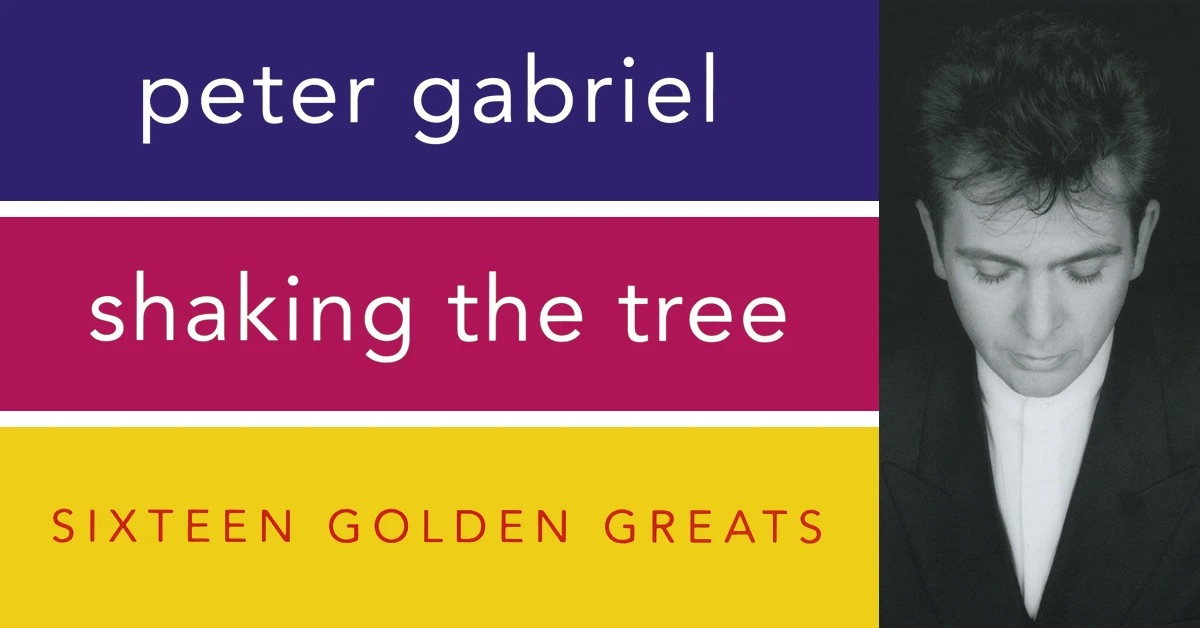
In the wake of So's success, Gabriel's first Best-Of album was released in 1990. Not really surprising to further capitalize on the resulting prominence. The title of this compilation was Shaking The Tree: Sixteen Golden Greats – and at least the subtitle sounds a bit pompously hollow. Did Gabriel choose it this way? It certainly doesn't have the humorous touch of the later Hit / Miss or other compilations.
Tracklist
Best-Of compilations are usually not worth mentioning, as everything contained is already familiar to the average fan. Essentially, this is no different here - but a few details are worth considering. The selection of tracks is, of course, due to the time of release. Some things that would be important from today's perspective are missing - they simply weren't available at the time. As a result, however, the album's atmosphere is quite unique, with a strong emphasis on edgy elements. It's also interesting which tracks were actually selected from the previous albums. So let's first take a look at the tracklist. The first solo album from 1977 is represented by two tracks. Both are not unexpected choices: Solsbury Hill was Peter's first, early hit, Here Comes The Flood was popular with fans and always important to him. Interestingly, it's presented in a new recording (see below). No song from the often-maligned second album from 1978 is included. This is a shame, as it actually has a few catchy numbers. Four songs are included from the third album from 1980. Games Without Frontiers was its advance single, Biko was also released as a single and is also a significant piece in Gabriel's overall oeuvre. These decisions are not surprising. Choosing Family Snapshot and I Don't Remember might be considered more astonishing. The former is very popular with fans, and Peter himself seems to appreciate the piece, as he plays it repeatedly at concerts. However, it was never a hit. Neither was I Don't Remember, although it was released as a single. The choice could have also fallen on No Self Control (also a single) or Not One Of Us. Presumably, I Don't Remember was chosen because it's the most palatable track of the options. Three tracks are represented from the 1982 album. Shock The Monkey was a must as a veritable hit. San Jacinto is similar to the above: Not a powerful hit, musically even quite demanding, but still popular. The album also had no other single success. The ones that come closest to mainstream appeal would be Kiss Of Life and I Have The Touch. The choice fell on the latter, as it was once again a single and was available in a pleasing remix (see below). Additionally, Kiss Of Life apparently didn't rank very high in Gabriel's estimation. It's not surprising that So is represented with five tracks. What is surprising, however, is that alongside the single successes Sledgehammer, Big Time, Don't Give Up, and Red Rain, Mercy Street is included, while In Your Eyes is missing.
It's not surprising that nothing from Gabriel's first soundtrack Birdy was included. Scores are less suitable for Best-Ofs. It's all the more surprising that Passion is present with Zaar. The piece had also received its own video and was apparently highly appreciated in the Gabriel household. Finally, there's a non-album track: Including Shaking The Tree is certainly due firstly to the friendship with Youssou N'Dour and an attempt to make him even more known in the world, and secondly, Peter seemed to appreciate the piece anyway, as he later had it in the standard repertoire during the tour for the US album. To conclude this part, a small statistical overview:
Peter Gabriel, 1977 - 2 tracks
Peter Gabriel, 1978 - 0
Peter Gabriel, 1980 - 4 tracks
Peter Gabriel, 1982 - 3 tracks
Birdy, 1985 - 0. Tracks
So, 1986 - 5 tracks
Passion, 1989 - 1 track
Other - 1 track
Edits / Transitions
Not all tracks were selected in their album versions. In fact, this is only the case for five of them. Additionally, small changes were made to a few tracks to emphasize the transition to the next. It's worth taking a look at the versions included. Solsbury Hill, Family Snapshot, San Jacinto, Red Rain and Big Time are present in their respective album versions.
Track 2 I Don't Remember
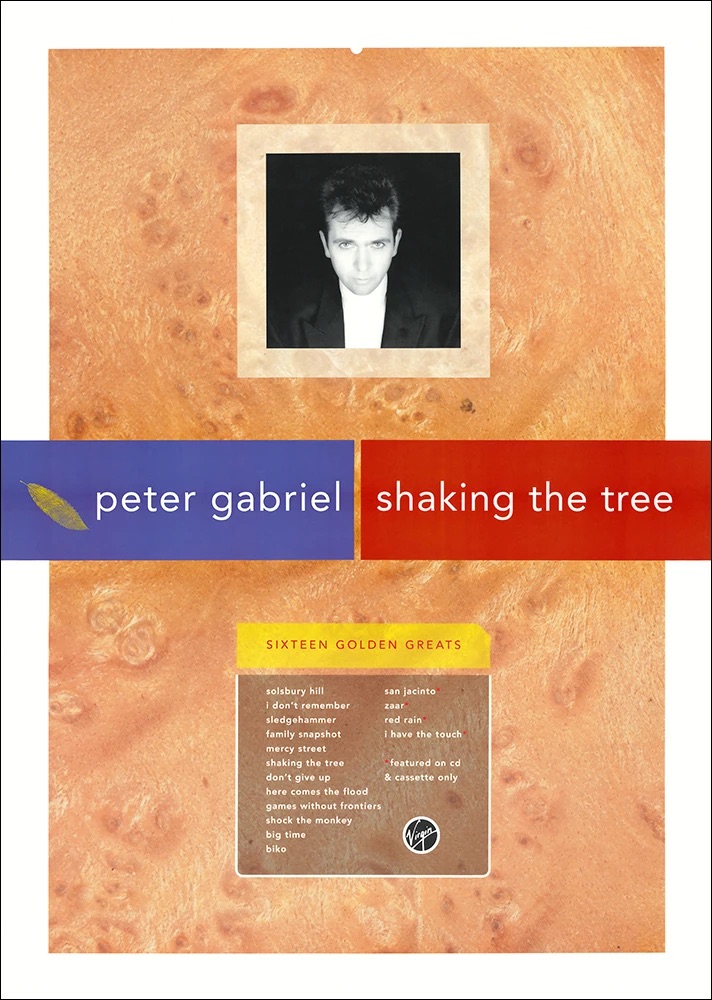 Comes without a start and is about a minute shorter: The ending was tightened, the guitar drone that fades out in the original swells up again here and is then abruptly cut off by Sledgehammer.
Comes without a start and is about a minute shorter: The ending was tightened, the guitar drone that fades out in the original swells up again here and is then abruptly cut off by Sledgehammer.
Track 3 Sledgehammer
The single edit is included. It's about 15 seconds shorter, without the shakuhachi intro (entry is immediately with the horn riff) and the drum outro at the very end remains in the room, as in the video and dance mix. The version then breaks off in a final boom with reverb.
Track 5 Mercy Street
Is about 1'40 shorter than the album version. The intro was tightened, the first interlude as well, and the entire final phase with the vocal improvisation is missing.
Track 6 Shaking The Tree
The track originally comes from Youssou N'Dour's album The Lion (1989), but is presented here in the 1990 remix, which is different from the album version or the one on the separately released maxi-single (also 1989). The arrangement of this version here is more reduced, the overall mood perhaps more sober, more composed, less playful.
Track 7 Don't Give Up
Is about 40 seconds shorter than the album version. There's no intro fade-in, the beginning is a hard entry from second 24 of the original. The fade-out at the end is about 15 seconds shorter.
Track 9 Here Comes The Flood – New Recording 1990
After the release of his first solo album, Gabriel was not satisfied with the version of Here Comes The Flood immortalized there. Just a year later, he had recorded a completely stripped-down version for Robert Fripp's solo album Exposure. Another year later, a similar version was released in German as the B-side to Games Without Frontiers calles Jetzt Kommt Die Flut. But this reduced version was not yet available on an English record under Gabriel's own name. This was finally rectified here.
In addition to reducing the accompaniment to just piano (and a tiny bit of synthesizer), the new recording also stands out because the melody of verses and chorus were slightly varied for the first time.
Track 11 Games Without Frontiers
Is about 10 seconds shorter than the album version. The intro begins without an initial count-in, starting directly with the first guitar note. The fade-out was also slightly tightened.
Track 12 Shock The Monkey
The radio edit is included, which is about 1'30 minutes shorter than the album version. The intro was tightened, the repetition of the chorus is out, the instrumental interlude halved. For the finale, the entire end densification was shortened.
Track 13 I Have the Touch
There's some confusion with the track designation here. What's heard is the '85 remix, but it's incorrectly named as 1983 Remix (which is different again, especially longer). The present version is about 50 seconds shorter than the one from the album. It's more pleasing overall, has a less synthetic sound in the drums and therefore feels punchier, has more drive. Also because, for example, the general pause after the first chorus is missing or fresh keyboard runs are interspersed. The album version, in contrast, is far more chunky.
Track 15 Zaar
Is almost two minutes shorter than the album version. 17 seconds of the intro are gone (5 "pulses" in the musical breathing), the final phase was tightened. It's likely the same edit that was used for the music video.
Track 16 Biko
An edited album version is actually represented here - not the maxi version from 1980 (which would actually be longer). The version is about 35 seconds shorter, the first interlude was halved, the final passage streamlined.
Cover Image
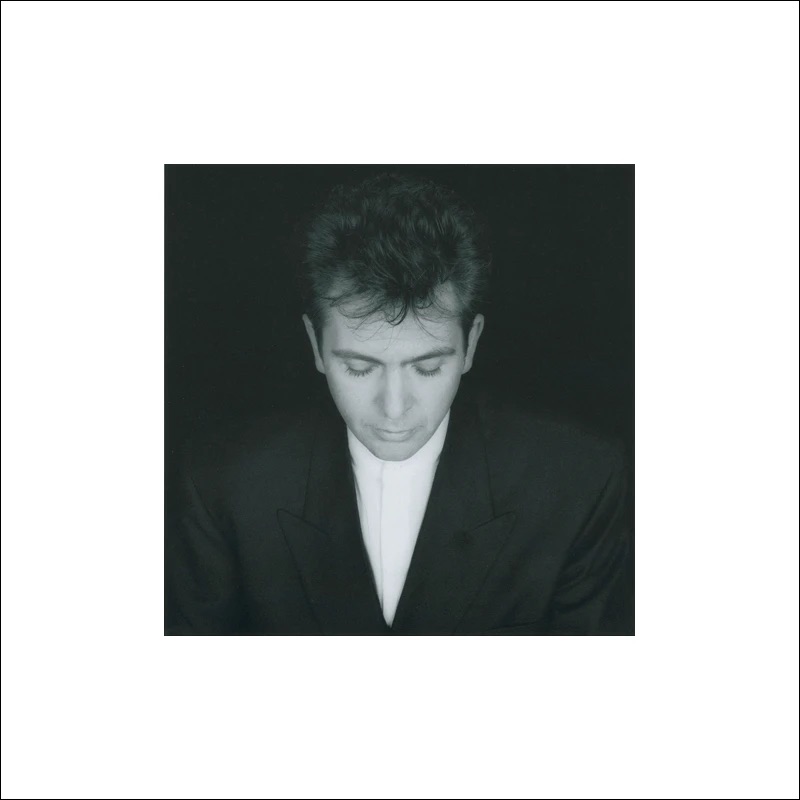 The cover of the compilation once again shows a portrait of Gabriel. The front and back feature almost the same image, the main difference being that Gabriel has his eyes lowered and is not looking at the viewer in one. Interestingly, this is on the front side. The black and white photos are by Robert Mapplethorpe, who died before the album's release. Gabriel considered him one of the greatest photographers who, in addition to controversial stagings, also made "fantastic portraits".
The cover of the compilation once again shows a portrait of Gabriel. The front and back feature almost the same image, the main difference being that Gabriel has his eyes lowered and is not looking at the viewer in one. Interestingly, this is on the front side. The black and white photos are by Robert Mapplethorpe, who died before the album's release. Gabriel considered him one of the greatest photographers who, in addition to controversial stagings, also made "fantastic portraits".
Conclusion
Overall, the compilation can be described as quite successful. It provides a good cross-section of Gabriel's entire work up to that point. It doesn't shy away from including more demanding pieces, while at the same time being so pleasing that the listener hooked by So is not disturbed. And the die-hard fan is also catered to, as there are at least two recordings on the album that were previously unreleased (with Here Comes The Flood – New Recording 1990 even being a real treat). Of course, one might wish for one decision or another to be different, but there's always something to say. And the selection made is absolutely acceptable. The fact that most pieces are cut is certainly due, on the one hand, to wanting to be more accessible and not demanding too much patience from the listener, and on the other hand, this way more fit on the album, which at a good 77 minutes was already over the playing time of a regular CD. If you know the original versions of the tracks, these edits probably seem a bit strange, and the regular fan doesn't need them at all, of course. Sometimes the cuts are at least so skillfully placed that you hardly notice them without direct comparison. A few new transitions between the tracks (mainly in the first half) can also be appreciated with a nod of acknowledgment. The version of Here Comes The Flood is really worthwhile otherwise. Overall, then, an accessible compilation that doesn't hide Gabriel's edges and is therefore integral.
Author: Thomas Schrage 10/2024
Tracklist
1 Solsbury Hill [Peter Gabriel, 1977] – 4:20
2 I Don’t Remember (Edit) [Peter Gabriel, 1980] – 3:48
3 Sledgehammer (Single edit) [So, 1986] – 4:52
4 Family Snapshot [Peter Gabriel, 1980] – 4:25
5 Mercy Street (Edit) [So, 1986] – 4:43
6 Shaking The Tree (1990 remix) [Original: The Lion (Gaïnde), 1989] – 6:24
7 Don’t Give Up (Edit) [So, 1986] – 5:55
8 San Jacinto [Peter Gabriel (Security), 1982] – 6:40 *
9 Here Comes The Flood – New Recording 1990 [Original: Peter Gabriel, 1977] – 4:31
10 Red Rain [So, 1986] – 5:35 *
11 Games Without Frontiers (Edit) [Peter Gabriel, 1980] – 3:57
12 Shock The Monkey (Radio edit) [Peter Gabriel (Security), 1982] – 3:57
13 I Have The Touch (’85 (!) remix) [Original: Peter Gabriel (Security), 1982] – 3:44 *
14 Big Time [So, 1986] – 4:26
15 Zaar (Edit) [Passion, 1989] – 2:58 *
16 Biko (Edit) [Peter Gabriel, 1980] – 6:54
* not on the Vinyl-Version (which is accordingly called Shaking The Tree: Twelve Golden Greats)
Brief comparison with HIT
Just 13 years after Shaking The Tree, Gabriel's second Best-Of collection Hit / Miss was released. We've reported here on the confusion of the tracklists of the different country versions. But it might still be quite interesting to see which tracks from Shaking The Tree were also selected for the second compilation.
Here's a brief list:
I Don't Remember is on Miss (US version)
Family Snapshot is on Miss (German version)
Mercy Street not included
Shaking The Tree not included
San Jacinto is on Miss (all versions)
I Have The Touch is on Miss - but in the Robbie Robertson Remix
Zaar not included
all other tracks are included on HIT

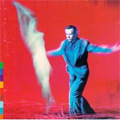

Peter Gabriel created a mixture of the World Music in Passion with the Mainstream of So.
Review Available
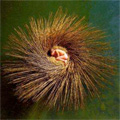

Multi-Artist-Album from 2000, with Elisabeth Frazer, Richie Havens, Paul Buchanan, Neneh Cherry and larla Lionáird. Gabriel himself sings on four.
Review available